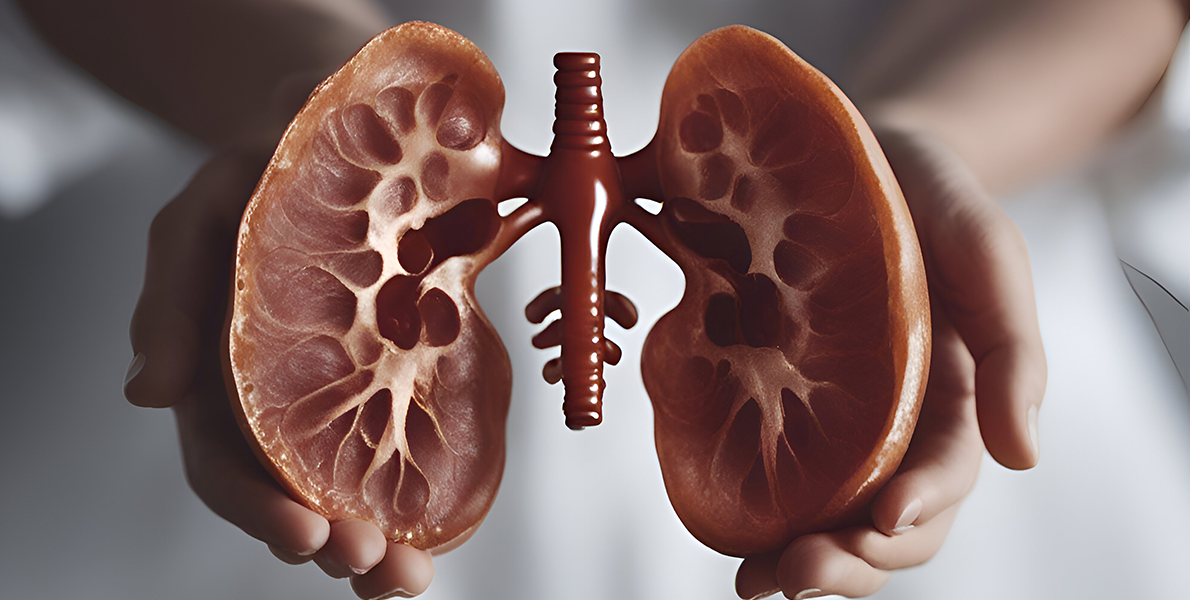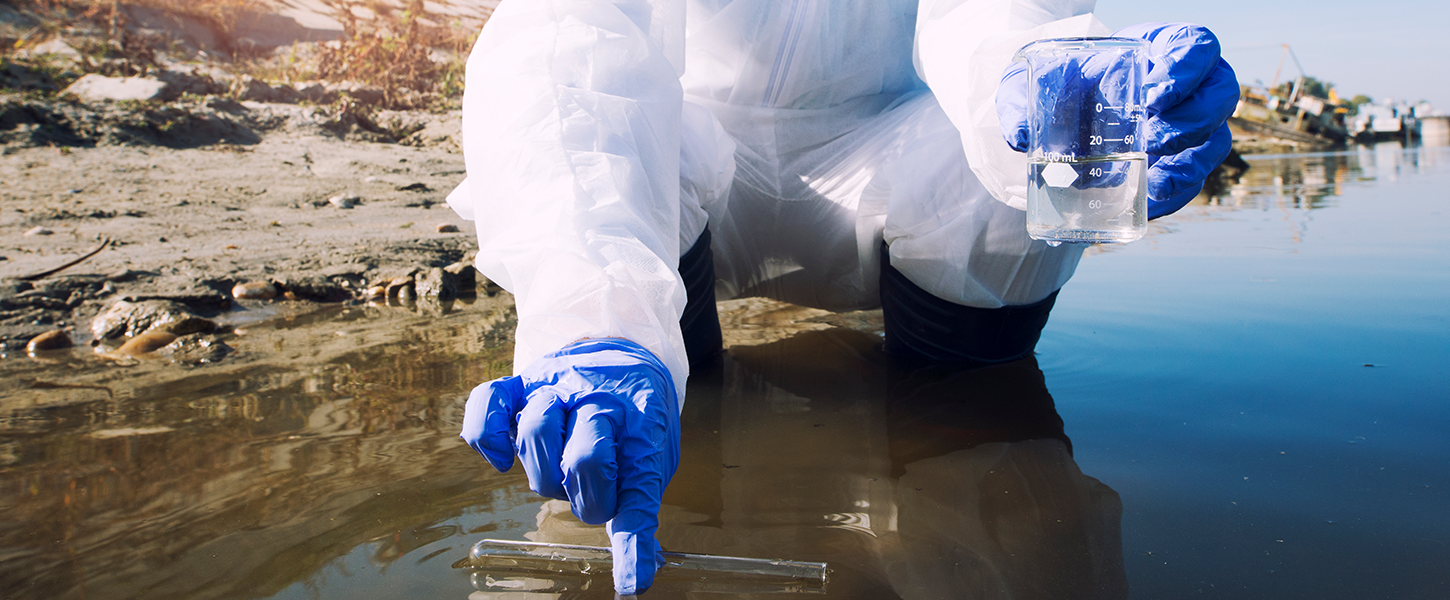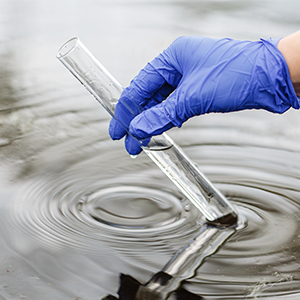Articles / PFAS / Sustainability / Water pollution
PFAS and Kidney Health
PFAS and Your Kidneys: Essential Insights for World Kidney Day
March 13, 2025
PFAS and Your Kidneys: Essential Insights for World Kidney Day
March 13th, marks World Kidney Day, dedicated to raising awareness and promoting proactive actions against kidney related disease.
In this article, we are focusing on the growing concerns regarding the connection between Per- and Polyfluoroalkyl substances (PFAS) exposure and kidney impairment.
Understanding these links is vital for developing effective prevention strategies that protect future generations from harmful chemical exposures.

Exposure to per-and polyfluoroalkyl substances (PFAS) has been linked to impaired kidney function.
World Kidney Day: Understanding the Impact of PFAS on Kidney Health
Every year, World Kidney Day serves as a global campaign aimed at raising awareness about the importance of our kidneys and reducing the frequency and impact of kidney disease. Celebrated this year on the 13th of March, this day encourages people to take proactive steps to maintain kidney health and to increase access to treatment for those affected by kidney-related issues. In recent years, one significant concern that has emerged is the role of per- and polyfluoroalkyl substances (PFAS) in contributing to kidney problems.
The Importance of Healthy Kidneys
Kidneys are vital organs responsible for filtering waste products and excess fluids from the blood, which are then excreted in urine. They also help regulate blood pressure, balance electrolytes, and produce hormones that affect other bodily functions. Maintaining kidney health is crucial, as kidney disease can lead to severe health complications, including heart disease, stroke, and even kidney failure, which may necessitate dialysis or a kidney transplant.
What Are PFAS?
PFAS, or per- and polyfluoroalkyl substances, are a group of human-made chemicals that have been used in various industrial applications and consumer products since the 1940s. These chemicals are valued for their resistance to heat, water, and oil, making them useful in products like non-stick cookware, water-repellent clothing, stain-resistant fabrics, and firefighting foams.
However, PFAS are often referred to as “forever chemicals” due to their persistence in the environment and the human body. They do not break down easily and can accumulate over time, leading to potential adverse health effects.
How PFAS Affect Kidney Health
Research has shown that exposure to PFAS can have significant implications for kidney health. Here are ways PFAS can contribute to kidney problems:
- Bioaccumulation in the Body: Once PFAS enter the body, they can accumulate in the kidneys and liver, where they may interfere with normal organ function. This accumulation can lead to inflammation and damage over time.
- Impaired Kidney Function: Studies have linked PFAS exposure to reduced kidney function. A USC study has shown a link between PFAS, kidney function and gut health, whilst other studies indicate that PFAS may impair renal function by affecting lipid metabolism and increasing oxidative stress.
- Increased Risk of Kidney Disease: Epidemiological studies have suggested a correlation between PFAS exposure and a higher risk of developing chronic kidney disease (CKD). This is particularly concerning for individuals living near industrial sites or areas with PFAS-contaminated water sources.
- Disruption of Hormonal Balance: PFAS can disrupt endocrine function, affecting hormones that play a crucial role in kidney health, such as those involved in regulating blood pressure and fluid balance.

Studies of PFOA and PFOS suggest they can disrupt cellular processes within the kidneys.
Stay Ahead of Potential Risks
Given the potential risks associated with PFAS, it is essential to minimise exposure to these chemicals to protect kidney health. Here are some strategies individuals and communities can adopt:
- Stay Informed: Awareness is the first step. Stay informed about PFAS and their potential sources in your environment. Check local water quality reports and be aware of any advisories regarding PFAS contamination.
- Use Alternatives: Chose products that do not contain PFAS. Look for alternatives to non-stick cookware and choose natural fibres over stain-resistant fabrics.
- Advocate for Change: Support policies and regulations that aim to limit PFAS emissions and promote cleanup efforts in contaminated areas. Community involvement can lead to significant changes in how these substances are managed.
Future Directions
World Kidney Day offers an opportunity to reflect on the importance of kidney health and the steps we can take to protect these vital organs. Understanding the impact of PFAS on kidney health is crucial in addressing the broader issue of environmental toxins and their role in chronic diseases. By reducing exposure to PFAS and advocating for safer environmental practices, we can contribute to healthier kidneys and a healthier future for all.
On World Kidney Day, let us commit to making informed choices and supporting efforts to reduce the burden of kidney disease worldwide. With collective action and awareness, we can safeguard our kidneys and enhance our overall well-being.
About Arvia
Arvia is one of the world’s leading manufacturers of electrochemical water treatment products.
With design, manufacturing, and R&D in the UK, they also have labs in India, a facility in China and have expanded into the US.
Arvia’s treatment systems include Nyex Florenox™, Nyex Rosalox™ and Ellenox™ – three revolutionary systems specifically designed for tertiary water treatment, each delivering spectacular (up to parts per billion) results treating many recalcitrant pollutants in industrial wastewater like PFAS, endocrine disruptors and antibiotics.
To see how Arvia Technology could benefit many water treatment systems worldwide, check the Arvia website or make contact to set up a one-to-one consultation with a water science expert.
More featured articles
02.3.2025

This article examines the health risks of PFAS-contaminated water, including a higher risk of cancer and other harmful effects.
03.3.2025

This article examines PFAS, which consumer products it can be found in, exposure and the effects on the environment.
Our wastewater treatment expertise
Our water technology can be used to treat a variety of water treatment applications. Once we understand the nature of your wastewater and your final water quality target, our water treatment specialists can make recommendations as to how best to treat your water. Take a look at some of the Nyex applications here:
Need help? Speak with an expert
